Ten Questions To Ask A Friend Who Just Read Your Novel
Ten questions to ask a friend who just read your novel
Here are ten questions to ask that will not put your friend in a tough spot, but will still give you some useful input on your novel:
1. At what point did you feel like “Ah, now the story has really begun!” 2. What were the points where you found yourself skimming? 3. Which setting in the book was clearest to you as you were reading it? Which do you remember the best? 4. Which character would you most like to meet and get to know? 5. What was the most suspenseful moment in the book? 6. If you had to pick one character to get rid of, who would you axe? 7. Was there a situation in the novel that reminded you of something in your own life? 8. Where did you stop reading, the first time you cracked open the manuscript? (Can show you where your first dull part is, and help you fix your pacing.) 9. What was the last book you read, before this? And what did you think of it? (This can put their comments in context in surprising ways, when you find out what their general interests are. It might surprise you.) 10. Finish this sentence: “I kept reading because…”
Your friend is probably still going to tell you, “It was good!” However, if you can ask any specific questions, and read between the lines, you can still get some helpful information out of even the most well-meaning reader.
Source: Examiner
More Posts from Galaxy62 and Others
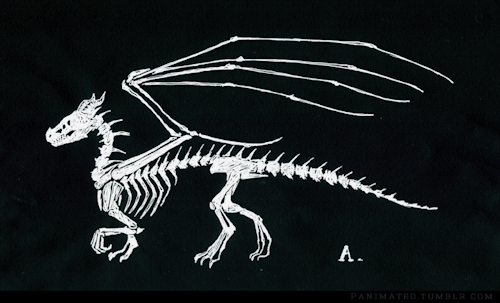
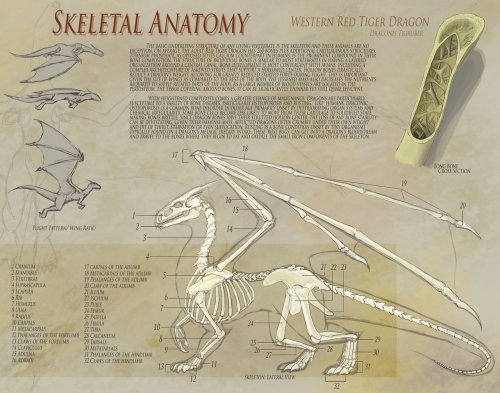
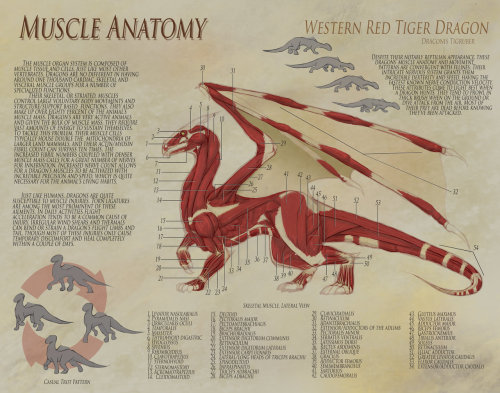
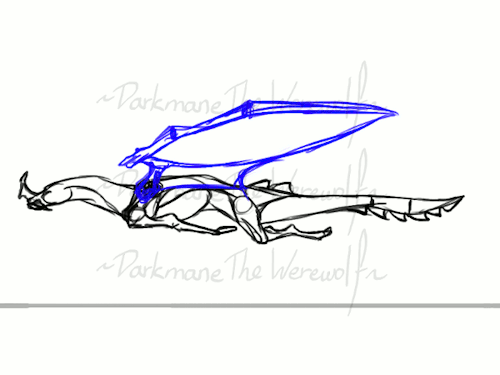

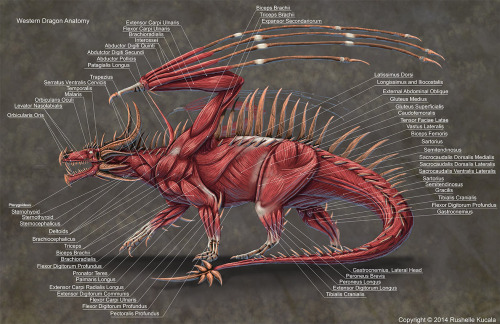
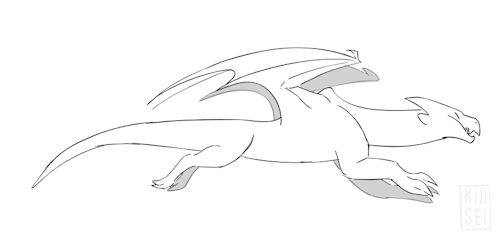

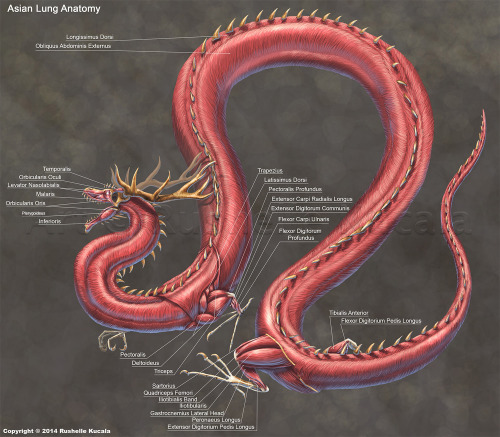

Dragon Anatomy Top Image Row 1 Row 2 Row 3 Row 4 Row 5 Bottom Image

Made my day.
I’d say it was love at first sight but you literally tried to kill me during the first hour of knowing me.
Callum to Rayla during their wedding vows
What sort of questions should I be asking my beta readers?
QUESTIONS TO ASK YOUR BETA READERS:

When I send out my chapter to be read over by my beta readers, I always include a set of questions typed out at the bottom, grouped into different categories such as: plot, pacing, character, setting, etc.
You might want to tailor the questions depending on the genre or which chapter it is. For example, if it’s the first chapter you’ll want to ask them about how well your story managed to hook them, or if they managed to easily get an idea of the world you’ve introduced them to. If it’s the climax you might want to ask if the action scenes are fluid, and if the plot twist/s were predictable or surprising.
Here’s some example questions that you could use:
Opening Chapter:
What is your first impression of the main character? Do you find them likable? Annoying? Boring?
After reading it for the first time, what is your first impression? Was it cohesive and compelling? Boring and confusing?
Did the first sentence/paragraph/page efficiently grab your attention and hook you in?
If you were to read this chapter in a bookstore/library would you be convinced to buy it? Or would you need to read further before deciding? Why or why not?
Did you get oriented fairly quickly at the beginning as to whose story it is, what’s going on, and where and when it’s taking place? If not, what were you confused about at the beginning?
Does the first chapter establish the main character efficiently? Do they feel believable?
Characters:
Could you clearly imagine what the characters looked like? If not, who?
Who was your favourite character and why? Has your favourite character changed? (if this hasn’t changed feel free to skip this question)
Are there any characters that you do not like? Why do you not like them? (Boring, annoying, problematic, etc.)
Was there ever a moment when you found yourself annoyed or frustrated by a character?
Could you relate to the main character? Did you empathise with their motivation or find yourself indifferent?
Were the characters goals/motivations clear and understandable?
Did you get confused about who’s who? Are there too many characters to keep track of? Are any of the names or characters too similar?
Do the characters feel three-dimensional or like cardboard cutouts?
How familiar have you become with the main characters? Without cheating could you name the four main characters? Can you remember their appearance? Can you remember their goal or motivation?
Dialogue:
Did the dialogue seem natural to you?
Was there ever a moment where you didn’t know who was talking?
Setting/world-building:
Were you able to visualize where and when the story is taking place?
Is the setting realistic and believable?
How well do you remember the setting? Without cheating, can you name four important settings?
Genre:
Did anything about the story seem cliche or tired to you? How so?
Did anything you read (character, setting, etc.) remind you of any others works? (Books, movies, etc.)
Plot/pacing/scenes:
Do you feel there were any unnecessary scenes/moments that deserved to be deleted or cut back?
Do the scenes flow naturally and comprehensively at an appropriate pace? Did you ever feel like they were jumping around the place?
Was there ever a moment where you attention started to lag, or the chapter begun to drag? Particular paragraph numbers would be very helpful.
Did you ever come across a sentence that took you out of the moment, or you had to reread to understand fully?
Was the writing style fluid and easy to read? Stilted? Purple prose-y? Awkward?
Did you notice any discrepancies or inconsistencies in facts, places, character details, plot, etc.?
Additional questions:
What three things did you like? What three things did you not like?
Can you try predicting any upcoming plot twists or outcomes?
Was there ever a moment when your suspension of disbelief was tested?
Is there anything you’d personally change about the story?
Was the twist expected or surprising? Do you feel that the foreshadowing was almost nonexistent, or heavy handed?
Feel free to tailor these to your needs or ignore some of them if you don’t think they’re useful. Basically, your questions are about finding out the information about how others perceive your own writing and how you can improve your story.
-Lana
Plance is such a good ship wow
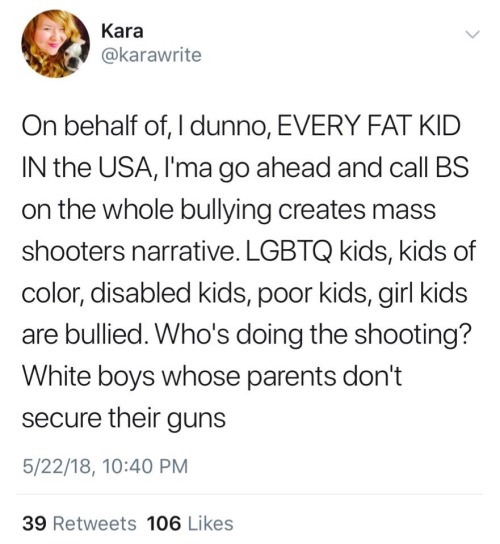
how to fucking flag pedophiles
call me the fucking ~internet police~ BUT I DIDN’T KNOW UNTIL TODAY THAT THERE’S LITERALLY A COMMUNITY OF “PEDOPHILE POSITIVITY” ON THIS HELLSITE
THERE ARE PEOPLE OPENLY ADMITTING THAT THEY ARE ATTRACTED TO CHILDREN/CONSUMING CHILD PORN ON THIS WEBSITE!?!??! THERE’S 13 YEAR OLDS ON HERE!!!
so my dudes, how to flag “maps” (minor attracted people aka pedophiles)
1. click “flag this blog”
2. click “this violates tumblr’s community guildlines”
3. click “someone is at risk of harm”
4. click “harm to minors”
5. type “pedophile” in the box

Me:

How I Wrote A Novel.
This, in a nutshell, is what I did to get a book with my name on it.
NOTE: This is just my personal way of making the words go. Other people have different ways to make their words go. In the world of words, there are no right answers. There’s just lots and lots of tea/coffee/tear stains.
1). The Idea
When I get an idea for a story, I open up a document, label it “Brainstorming,” and start making a bullet list of events that consist of the plot.

It has to be an idea with tangible weight. A stray bit of dialogue or something vague like Halloween, that doesn’t give me much to work off of. Halloween creatures living on the same street where it’s Autumn every day- now that’s something I can build from.
What kinds of creatures are they? What do they do? What do their houses look like? The best ideas are the ones that spark more.
2). First Draft

This is the easy part- and the most challenging. Easy, because there’s literally no bar. I just sat there and typed. But it’s a huge mental challenge.
When I was in first draft mode, I wanted that story out. I thought that by making it such a rough, far-away version from the concept in my head, I was only delaying the day where I’d hold it in my hands. Turns out, that’s what got it to take on physical form in the first place. So I quieted down, grabbed my laptop and some hot tea, and typed.
3). Dissecting the First Draft

After I finished draft one, I printed it all off and highlighted the scant amounts that were passable for the next phase. Dialogue, descriptions, setting- anything that didn’t look like it was up to par was scratched out and omitted.
I call the above pictures A Slow Descent Into Madness.
4). The Second Draft

On a fresh document, I rewrote the story altogether- and it make a difference. I was coming up with things I hadn’t even thought of previously. And it was surprising how much better the plot was than the first time around. But it was still rough.
5). Draft Three

My method was to start with the bigger, more obvious issues and work my way down. Any plot holes I found were noted, and my outline was constantly under revision. I cut out entire scenes and made mental notes on ways they could be fixed/replaced.
This is where I started cutting chapters in half to make the story flow better- but I didn’t bother writing in usable chapter titles. Instead, I improvised:
6). Drafts Four and Five

These were dedicated to correcting the smaller, less obvious plot holes. This was the point where the story finally started to look close to what would become the final version.
7). Drafts Seven Onward

With the story line looking how I wanted, I then moved on to sentence structure. That one song that looked terrible? Rewritten. Over-the-top descriptions and excessive prose? Gone.
8). Editing and Proofing
This is where I had outside help. Besides this useful tool, I had two people check for spelling issues and the overall story. Once it was in decent shape to be made public, I asked for some additional help.
9). Betas
My betas were in the age range that my novel was geared toward, along with a couple of teachers and parents (as it was middle grade). I gave them the full manuscript, along with seven basic questions like “Which characters were your favorite/least favorite and why?” and “Was there a part of the story that didn’t make sense?”
I gave my betas three months to read a 42,590 word story, and by the end they gave me back the review sheets.
10). Final Adjustments
After I read over the reviews, I let the comments sit for three days so that I could proceed with a clear head. I smoothed out any flaws, scanned over the MS twice to make sure everything was right, and that is how I got to the end of writing my first novel.
Next comes publishing- which is a different beast entirely.



Pose Studies by Nieris
Support the artist and check them out on Instagram and Twitter!
-
 waterbottle3082 liked this · 1 month ago
waterbottle3082 liked this · 1 month ago -
 becominghero liked this · 2 months ago
becominghero liked this · 2 months ago -
 capcakeobvious liked this · 2 months ago
capcakeobvious liked this · 2 months ago -
 yoshifics reblogged this · 2 months ago
yoshifics reblogged this · 2 months ago -
 0rainy-diamond0 liked this · 2 months ago
0rainy-diamond0 liked this · 2 months ago -
 back-through-the-looking-glass reblogged this · 3 months ago
back-through-the-looking-glass reblogged this · 3 months ago -
 niazix liked this · 3 months ago
niazix liked this · 3 months ago -
 heckcareoxytwit liked this · 3 months ago
heckcareoxytwit liked this · 3 months ago -
 goodmornincaptain reblogged this · 3 months ago
goodmornincaptain reblogged this · 3 months ago -
 reneethegreatandpowerful liked this · 4 months ago
reneethegreatandpowerful liked this · 4 months ago -
 22hghgt-inspo reblogged this · 4 months ago
22hghgt-inspo reblogged this · 4 months ago -
 bugsupport liked this · 4 months ago
bugsupport liked this · 4 months ago -
 incarrnate liked this · 5 months ago
incarrnate liked this · 5 months ago -
 pickledkelpie liked this · 5 months ago
pickledkelpie liked this · 5 months ago -
 captain-bubblebath liked this · 5 months ago
captain-bubblebath liked this · 5 months ago -
 cashmeresatingold liked this · 5 months ago
cashmeresatingold liked this · 5 months ago -
 princeoftenderness liked this · 5 months ago
princeoftenderness liked this · 5 months ago -
 vaderztaterz liked this · 5 months ago
vaderztaterz liked this · 5 months ago -
 oh-great-another-blog-posts liked this · 5 months ago
oh-great-another-blog-posts liked this · 5 months ago -
 inkys-resources reblogged this · 5 months ago
inkys-resources reblogged this · 5 months ago -
 bebes-resources reblogged this · 5 months ago
bebes-resources reblogged this · 5 months ago -
 sillygooberatlas reblogged this · 5 months ago
sillygooberatlas reblogged this · 5 months ago -
 sillygooberatlas liked this · 5 months ago
sillygooberatlas liked this · 5 months ago -
 waystation-inspiration reblogged this · 5 months ago
waystation-inspiration reblogged this · 5 months ago -
 loveasachoice liked this · 5 months ago
loveasachoice liked this · 5 months ago -
 milliton reblogged this · 5 months ago
milliton reblogged this · 5 months ago -
 milliton liked this · 5 months ago
milliton liked this · 5 months ago -
 askecm reblogged this · 6 months ago
askecm reblogged this · 6 months ago -
 spurplepanda liked this · 6 months ago
spurplepanda liked this · 6 months ago -
 aeneatorgroggy reblogged this · 7 months ago
aeneatorgroggy reblogged this · 7 months ago -
 beyondhumanbelief liked this · 7 months ago
beyondhumanbelief liked this · 7 months ago -
 pandolfo-malatesta liked this · 8 months ago
pandolfo-malatesta liked this · 8 months ago -
 secretlyacat-artref reblogged this · 8 months ago
secretlyacat-artref reblogged this · 8 months ago -
 miranova23 reblogged this · 8 months ago
miranova23 reblogged this · 8 months ago -
 rayne-showers reblogged this · 8 months ago
rayne-showers reblogged this · 8 months ago -
 blackacid liked this · 8 months ago
blackacid liked this · 8 months ago -
 wickerchair reblogged this · 9 months ago
wickerchair reblogged this · 9 months ago -
 mondandy reblogged this · 9 months ago
mondandy reblogged this · 9 months ago -
 my-treasure-pile reblogged this · 9 months ago
my-treasure-pile reblogged this · 9 months ago -
 mondandy liked this · 9 months ago
mondandy liked this · 9 months ago -
 xx-leech liked this · 9 months ago
xx-leech liked this · 9 months ago -
 snakezora reblogged this · 9 months ago
snakezora reblogged this · 9 months ago -
 storytellin-bits reblogged this · 9 months ago
storytellin-bits reblogged this · 9 months ago -
 maltheniel liked this · 9 months ago
maltheniel liked this · 9 months ago -
 rubystar2029 liked this · 9 months ago
rubystar2029 liked this · 9 months ago